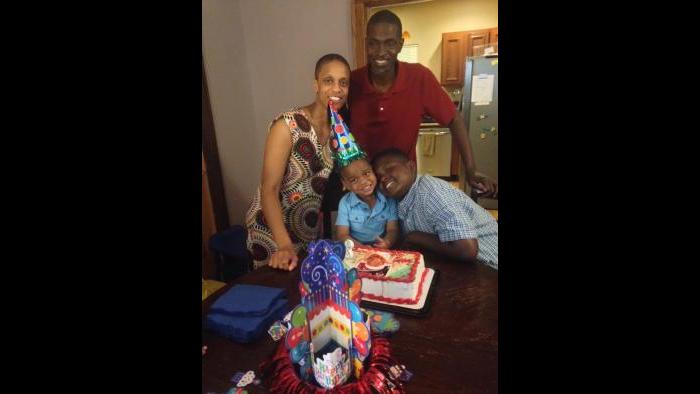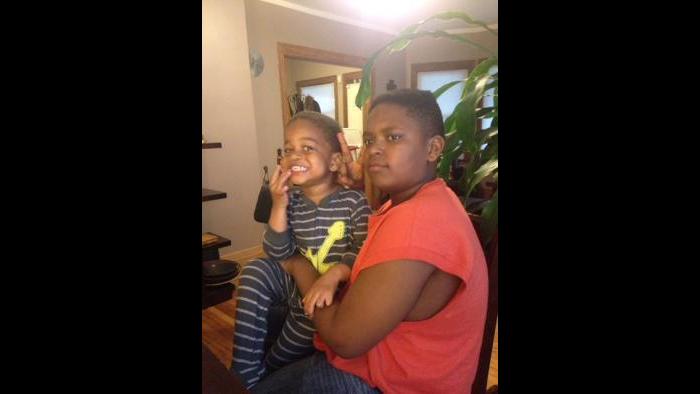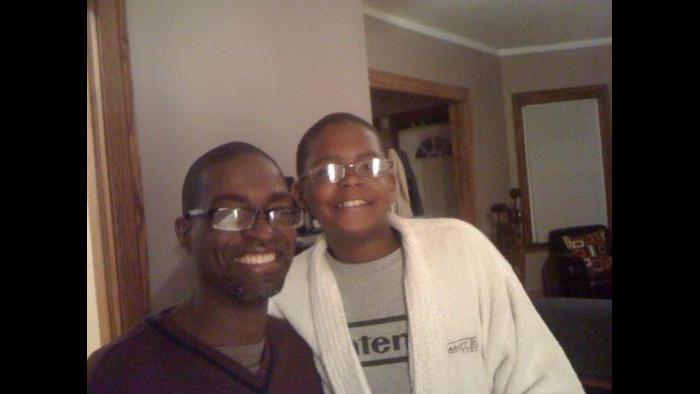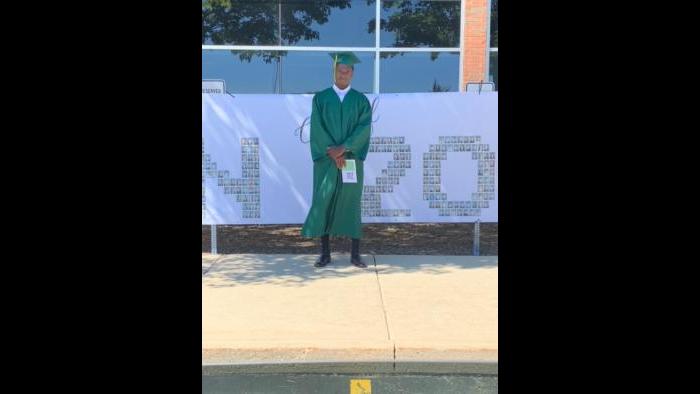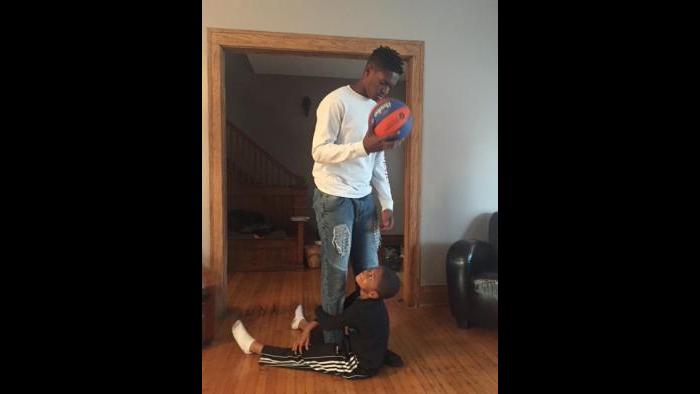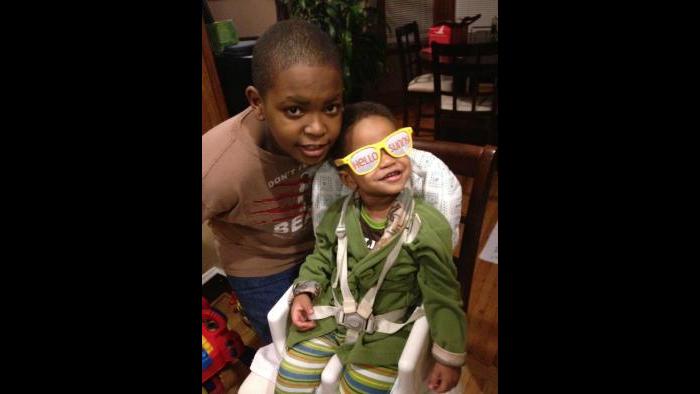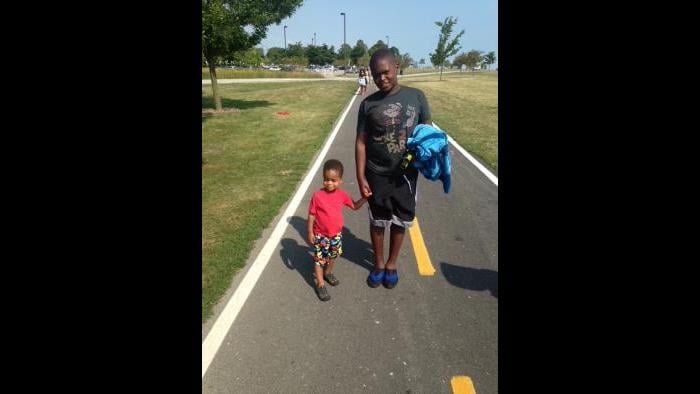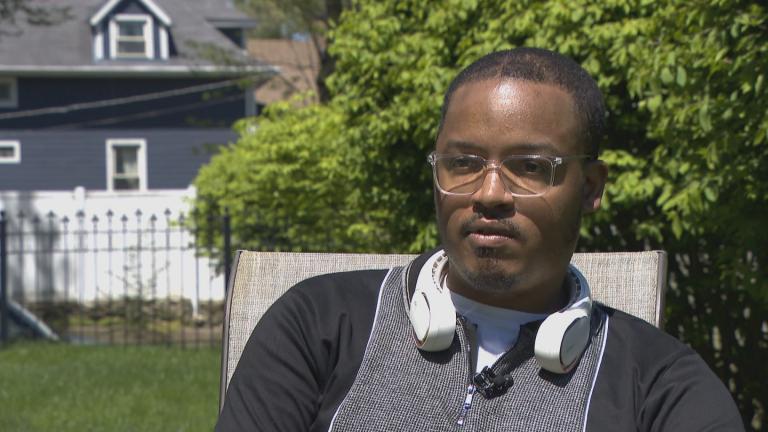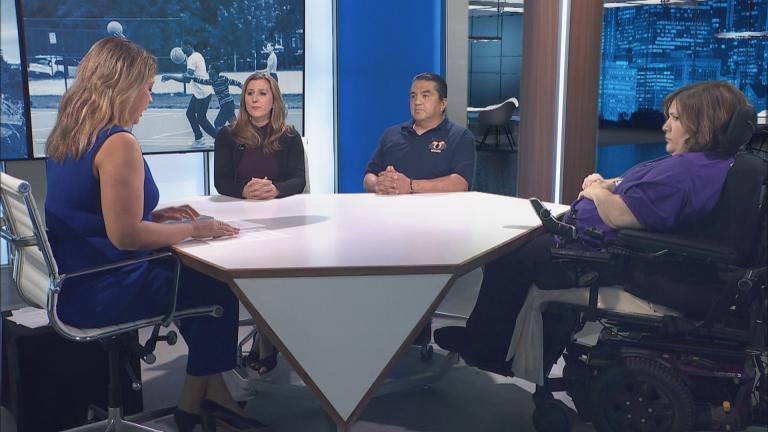Video: Part one of our conversation with Sonya Anderson. Watch part two here.
I first met Miles Thompson several years ago, when he joined his stepmom Sonya Anderson — the president of Thrive Chicago and a personal friend of mine — along with her son Jonah on a play date at a mutual friend’s home.
Three weeks ago, I came away from his funeral wishing I’d gotten to know him better.
Miles was found shot and killed in the alley behind his father’s home in the Austin neighborhood in early July, the day before his 19th birthday.
Chicago police say they’re still investigating the incident and no one has been charged.
As journalists, we avoid getting involved in the stories we cover. Few self-respecting journalists would interview a friend, except for … well, when we need to make an exception. This one hit too close to home to ignore.
Sonya and I have known each other for six or seven years. We met through the same mutual friend who hosted that play date, and found we have a lot in common. We’ve shared many meals, drinks and laughs together. This time, we shared tears.
In the days after Miles’ death, Sonya wrestled with how to express the variety of emotions she felt as a grieving mother, angry citizen and nonprofit leader, one who works specifically to engage boys and young men of color.
“I have devoted my entire life to issues around equity and access and now, specifically, to boys and young men of color,” she told me during a recent interview at her home. “And I could not save one of the boys of color in my own life, which to me means if I couldn’t do it, if my family could be exposed to this horror, then really it could happen to anyone. I don’t say that to be alarmist or to use scare tactics. I say it to say: we are truly all in this together.”
Sonya first met Miles when he was just 4 years old. She and his father, Marc, had been dating.
“I was so nervous,” she said. “I spend a lot of time talking in front of people, I spend a lot of time in front of audiences. I don’t think I’ve ever been as afraid in my life as I was standing in front of the door about to meet Miles for the first time. I rang the doorbell. He opened the door in that 4 1/2-year-old precocious kind of way and immediately just started chattering my ear off as if we had known each other for all our lives. And that just kind of sums up who he was. He was a people person. He was a person who attended to others and cared for others. He was the consummate big brother.”
In his words: In a video posted to social media last year, Miles Thompson encouraged his friends not to let the isolation of the pandemic stop them from connecting with the people they care about. As he aptly put it: tomorrow isn’t promised.
Miles was also known for being a hard worker and entrepreneurial. As a kid, Sonya jokes that Miles would’ve been called “husky,” but once he became interested in football, he worked hard enough to become the team defensive MVP at Glenbrook North High School and earn a full-ride scholarship to St. Ambrose University in Iowa. He deferred his freshman year since the pandemic canceled the football season. But he got a job, constantly working hard and thinking entrepreneurially, because he wanted to help pay for better treatment for his father’s multiple sclerosis.
“I didn’t know that before Miles passed away. It was my son who shared it with me first,” she said. “This was clearly something that was important to Miles because he was talking about it out loud to his younger brother, to his peers, friends at school. But once I heard it, I thought, ‘Of course. Of course, that’s what he was doing.’”
Sonya’s 10-year-old son, Jonah, was the first to discover his big brother’s body on the morning of July 8. With her resources, Sonya was able to immediately access counseling for Jonah. But she knows that not every family who finds themselves in a traumatic situation is able to do the same.
“If anything, this has really just underscored for me the importance of investing in social and emotional learning, investing in mental health supports, investing in all kinds of ways in which we can support the well-being of young people,” she said. “Because if this happened to us and it’s left such an indelible mark on us, and we have resources and we have ways to address and access the supports that we need, what does this mean for other families, other young people who don’t have this access?”
Sonya says she always works to change the narrative around how we look at and talk about the lives and futures of young men and boys of color.
“In my work at Thrive, we focus on creating pathways that are purposeful, that are meaningful, that are accessible to boys and young men of color,” she said. “And this narrative around boys and young men of color as all the things we know ‘dangerous, deficient in some way’ really misses an opportunity to think about this incredible population that is full of untapped potential, that when supported and channeled in the right ways could be such an asset to our communities, our city, to the world.”
Video: Part two of our conversation with Sonya Anderson. Watch part one here.

